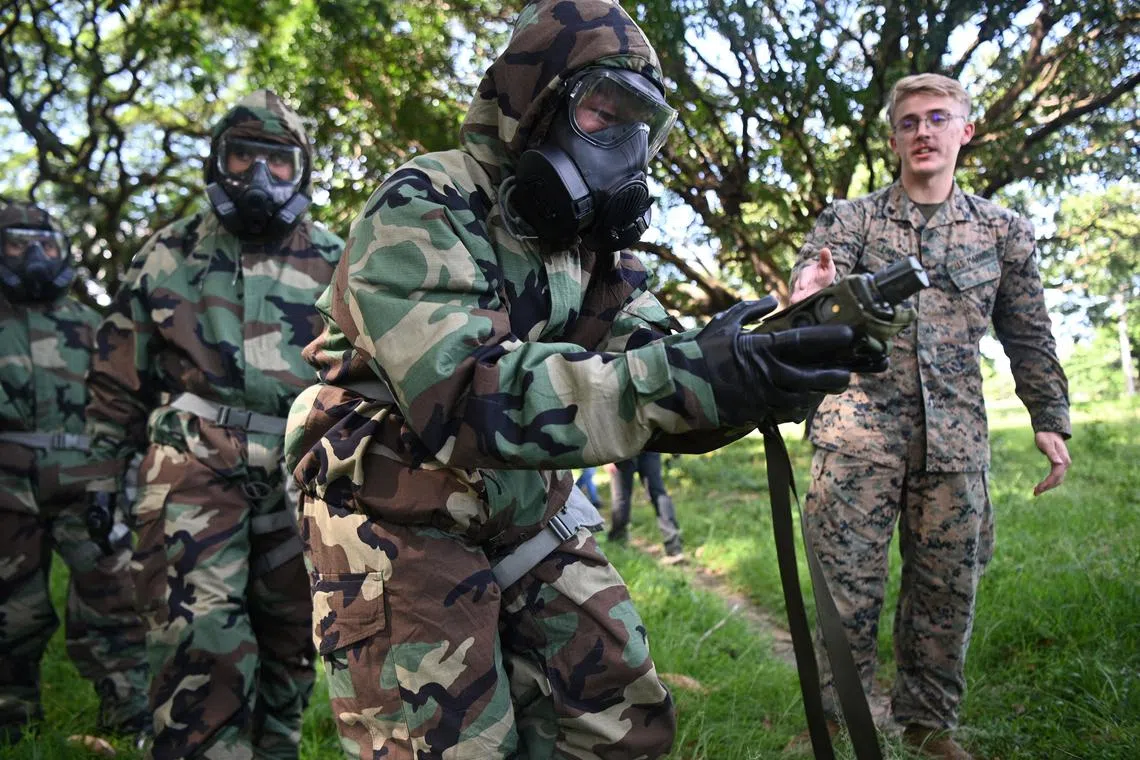Philippines to speed up US defence pact for troops, bases
Sign up now: Get insights on Asia's fast-moving developments

The renewed discussions over the Enhanced Defence Cooperation Agreement follow worsening ties between the US and China.
PHOTO: AFP
MANILA – The Philippines wants to accelerate a defence pact with the US for troops and bases that was earlier stalled, as President Ferdinand Marcos Jr bolsters security ties with a treaty ally amid rising tensions between Beijing and Washington.
Mr Arsenio Andolong, spokesman for the Department of National Defence, said the South-east Asian nation is working with the United States to speed up projects under the Enhanced Defence Cooperation Agreement (EDCA),
First signed in 2014, the pact allows the US to rotate in troops for prolonged stays, as well as build and operate facilities on its bases.
“The department is committed to accelerate the implementation of the EDCA by concluding infrastructure enhancement and repair projects at existing EDCA sites,” Mr Andolong said.
This includes “developing new infrastructure projects at existing EDCA locations, and exploring new locations that will build a more credible mutual defence posture”, he added.
The renewed discussions over the security pact follow worsening ties between the US and China
While the move appears to bring it closer to the US on the security front, officials have continued to warn that the region should not be made to choose sides between the two.
Mr Andolong said that US$65.5 million (S$92 million) has been earmarked for approved projects under the agreement thus far, and these are slated to be implemented in the next two years.
The Philippines and the US have also maintained talks over how to implement their 1951 Mutual Defence Treaty to “ensure that it remains relevant to address contemporary security challenges”, he said. BLOOMBERG


